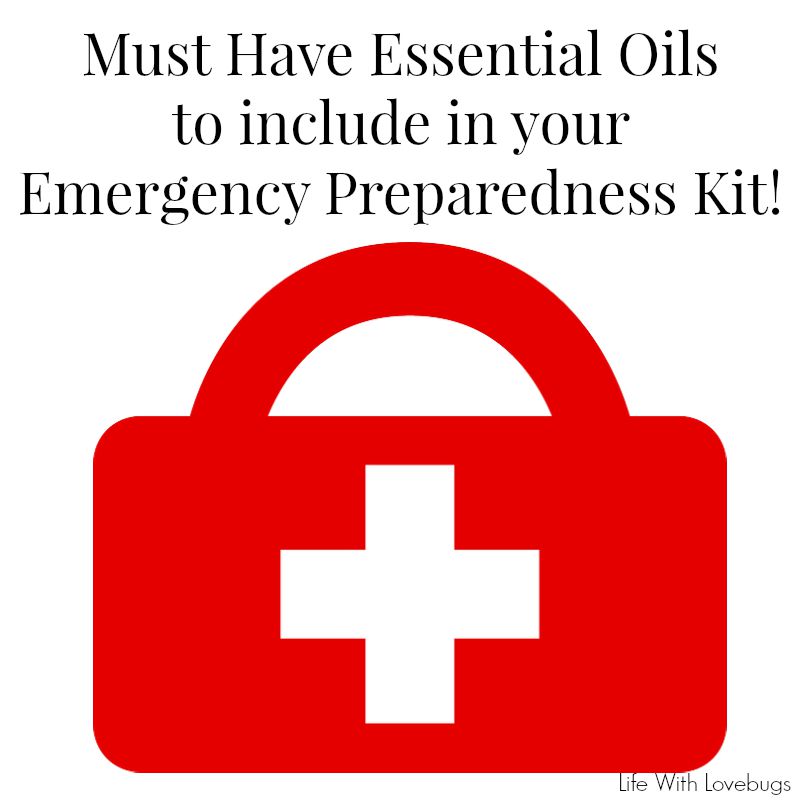Emergency Preparedness Kit Essentials
This story was produced in partnership with Duracell. All opinions are mine alone. #DuracellOptimumBrandPartner
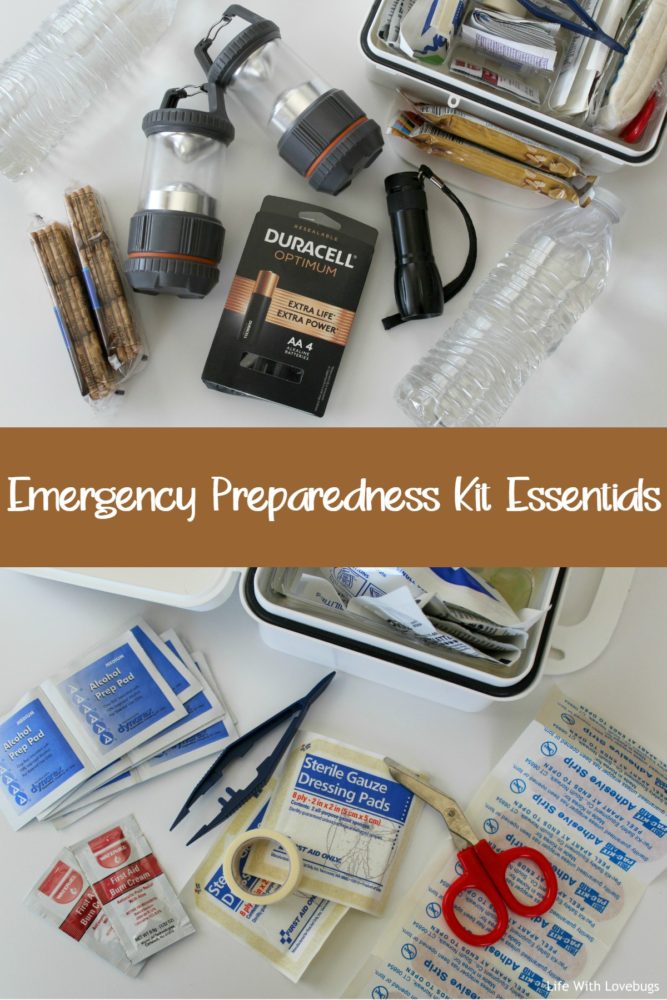
Growing up in California, earthquakes were a very real concern, and we always had an emergency kit in case “the big one” hit. When we moved to Texas last year, I didn’t think about creating another one since there are no earthquakes here! Instead, I learned about another natural disaster that we now have to be concerned with – hurricanes. We don’t live on the coast, but we’re close enough that we’ve experienced some pretty serious storms with lots of rain and strong winds. No matter what the disaster might be, it’s always a good idea to be prepared for the aftermath.
Many of these items you might need during an emergency are things you already have at home. I gathered the supplies I needed at my local H-E-B. You can keep extra items in large plastic bins, or designate a closet to keep everything organized.
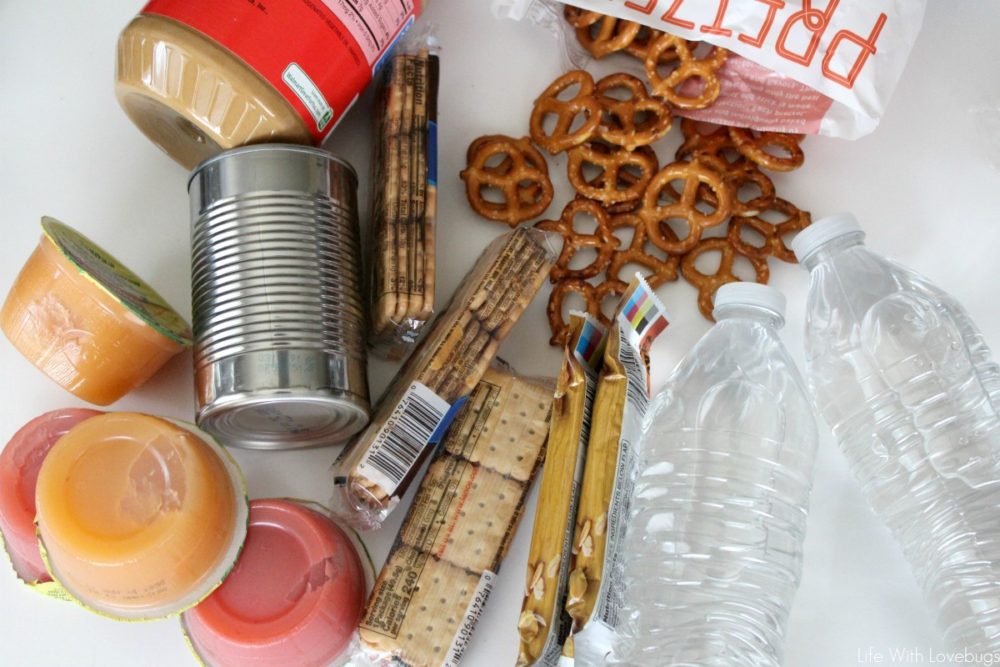
Food and Water
Food and water should be at the top of your list. For water, a good rule of thumb is one gallon of water per person per day. You can buy the gallon jugs or you can fill up empty milk jugs during peak storm season to have a little extra on hand. Just be sure to thoroughly clean out the jugs first. For food, always choose non-perishable items. Crackers, canned meats, soups, peanut butter, beans, granola bars, protein bars, nuts or beef jerky are good choices. Try to store items that you use regularly so that you’re familiar with how to cook or prepare them. You can rotate these items in and out from your storage and pantry to avoid reaching expiration dates. You should aim to have 3-5 days worth of supplies on hand.
Make a Personal Travel Kit
In case you are not able to stay at your home and have to travel, prepare a small backpack with essentials. For each member of your family, add a few spare changes of clothes, non-perishable snacks, a water bottle, a notebook and pen, a flashlight with extra batteries, a travel first aid kit, and an emergency contact information card. Be sure to replace the clothing regularly as your kids grow and the weather changes.
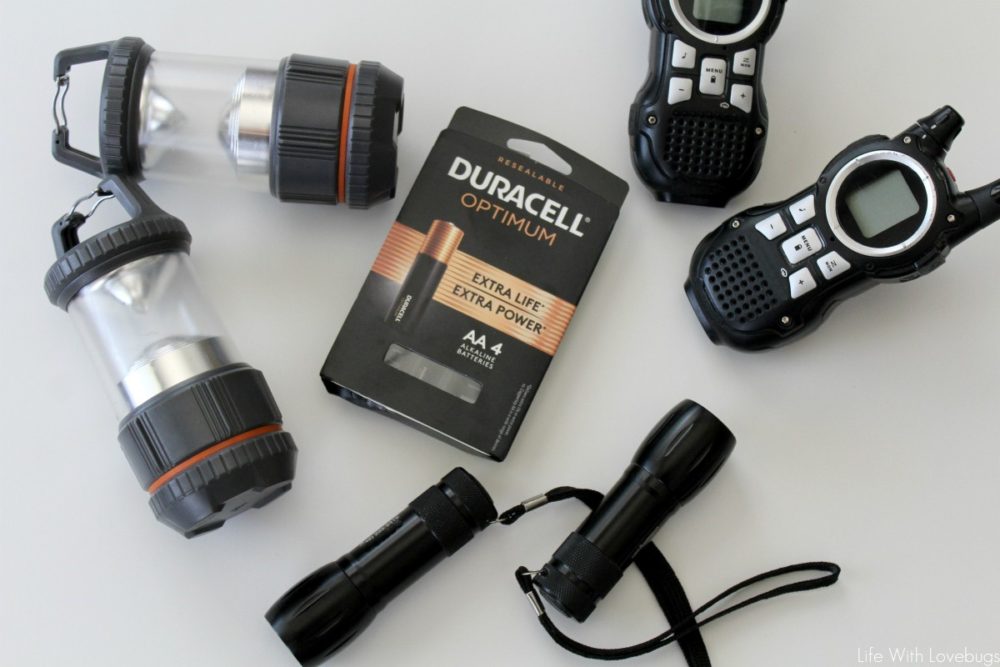
Flashlights and Radio
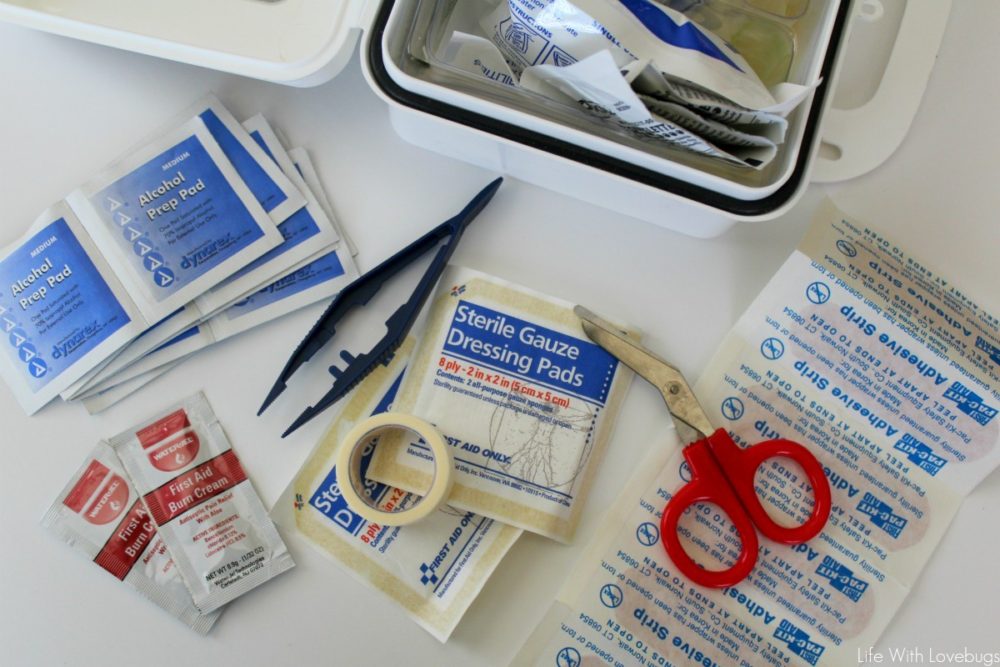
Medical Supplies And First Aid
A basic medical kit should include first aid items to treat minor aches and pains as the need arises. Bandages, antiseptic creams, gauze, medical tape, tweezers, hand sanitizer, as well as aspirin, ibuprofen, allergy medicines, and cough or cold medicines should be included. If possible, keep extras of the medications that you take regularly. Dust masks or painter’s masks can be added to your kit in case of airborne contaminants, especially for those who have asthma or allergies. Lastly, keep wet wipes and mouthwash on hand. If your running water supply is cut off, it would be nice to have an alternative way to clean up, both for daily use and in case of a medical emergency.
Games and Activities
When thinking about an emergency, food, water, and medical supplies come to mind first, but you will probably have a lot of downtime to fill. If you have no electricity, you won’t be able to charge your phones or power computers. Make sure you have board games, playing cards, or battery-powered hand-held games to keep everyone occupied. And of course, extra batteries like Duracell Optimum. Crossword books or puzzles are also a good idea.
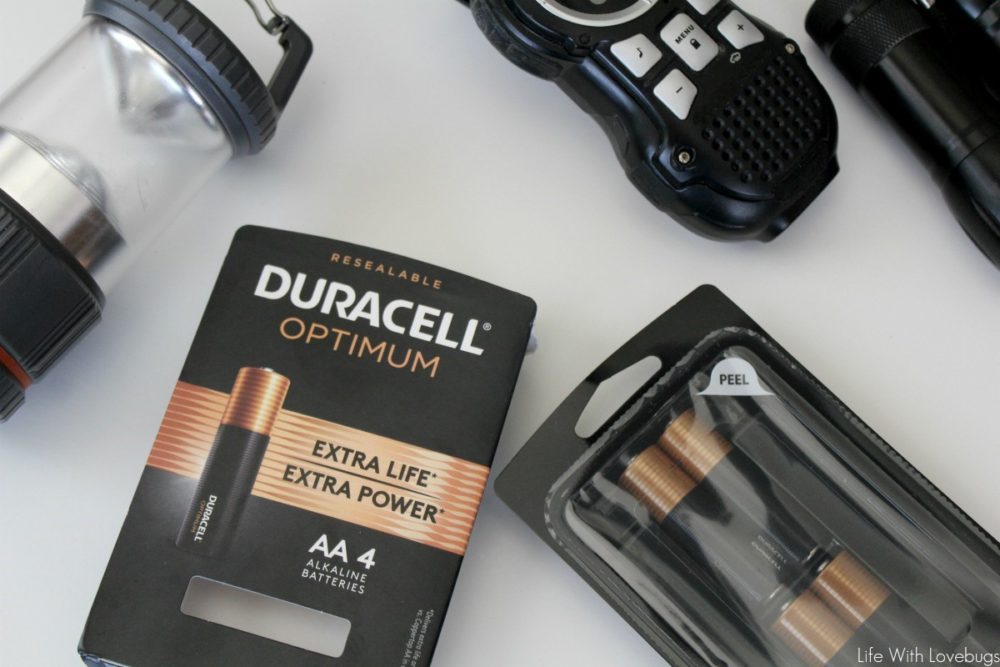
From flashlights to lanterns, hand-held games, or radios, batteries are essential to your emergency kit. The NEW Duracell Optimum batteries, available in both AA and AAA, can deliver extra life to some devices or extra power to others vs. Coppertop, so whether an emergency happens today or months from now, you can feel confident that you’ll be covered!
*Delivers extra life or extra power vs. Coppertop AA/AAA in a wide range of devices.

